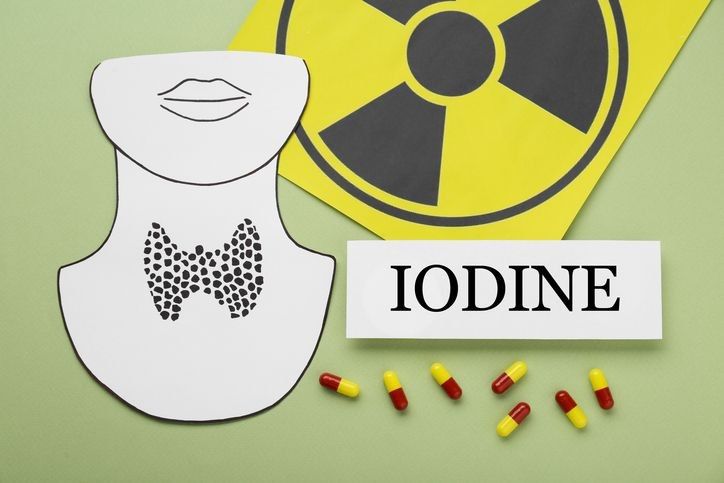Thyroid
Radioactive Iodine Therapy (RAI)
Also known as I131 therapy, RAI is a treatment method used primarily for thyroid conditions, particularly thyroid cancer and hyperthyroidism. Radioactive iodine therapy is highly effective in treating thyroid cancer by targeting residual thyroid tissue and metastases that may not be surgically removed. The therapy takes advantage of the fact that thyroid cells are the only cells in the body that absorb iodine. The radioactive iodine is taken about three months after surgery, and emits radiation that damages these cells, leading to their destruction.
According to the treatment goal, patients may undergo thyroid hormone withdrawal (stopping thyroid hormone medication) or receive injections to elevate TSH levels. This step is crucial to enhance the uptake of radioactive iodine by thyroid cells. A diet low in iodine may be recommended to further optimise the uptake of radioactive iodine by reducing competition from dietary iodine.
A calculated dose of radioactive iodine (I131) is administered orally, usually as a capsule or liquid. The radioactive iodine is absorbed by thyroid cells, particularly by those that are actively metabolising iodine (such as cancerous or hyperactive thyroid cells).
Depending on the dose administered, patients may need to stay in a hospital isolation room for a period to limit exposure to others due to radioactivity. Patients are monitored closely post-treatment to assess thyroid function, treatment response, and any potential side effects. Thyroid hormone replacement therapy is often resumed to maintain normal thyroid hormone levels.
